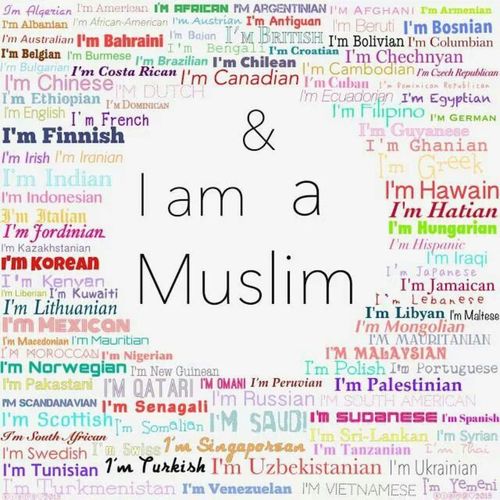Are you an American or a Muslim: What comes first?

With the rapid social and political changes in our modern world, old borders do not seem to fit anymore and defined frontiers are outdated. Moreover, globalization, exile and immigration have created a new environment where many people around us in our own society do not resemble us and are different from who we are and what we are familiar with. These pressing phenomena create an environment full of anxiety, tension and fear of anyone who is different. Therefore, the majority usually poses the question of identity that tests the priority of nationality at the surface level and the loyalty of the minority at a deeper level.
When it comes to the uprooted minority who face the question of identity, they will try to identify themselves by differentiation, in opposition to what one is not or what one is against in the foreign environment in which they live. Such a reactionary approach is natural given the circumstances that contribute to it. And though it could be beneficial in a time of rapid upheaval, in the long run this approach is unhealthy and potentially dangerous. The clear-cut answers of identity to clarify things are oversimplifying and reductive. Boiling down an individual's interests, affiliations and loyalties into merely one identity is nothing less than mere reductionism. Therefore, when people ask the question of identity, they expect the answer to be primarily "American", "British", "Italian", "French", "Dutch" or "Jewish", "Christian" or "Muslim". Any attempt at a compromise is seen as both ambiguous and unsatisfying.
The loyalty of individuals as a minority is measured through setting their national identity first and foremost to represent the one and only identity with which they could be identified. The truth of the matter as Amartya Sen, an Indian Economist and Noble laureate, stated in his book "Identity And Violence: The illusion Of Destiny" is that each individual has a multi-layered identity with each layer representing different loyalties according to the individual's national identity, religious affiliation, cultural background, personal hobbies, food preferences etc. It is no wonder then to find a person who is Indian by birth, American by upbringing, Pakistani in heritage, vegetarian, athlete and a women's rights champion. All of these identities work in parallel with no contradiction. Thus, the question of "are you an American first or a Muslim first" is simply wrong as both identities are not mutually exclusive but work at different levels. This means that on the passport, your national identity defines who you are as a citizen but not your religious affiliation.
Therefore, it is rather unhealthy and dangerous to reduce people to single identities. Any attempt to put a label or type on a person or to prioritize one component of identity leads to inner conflict and to sacrificing the other parts of one’s identity for the sake of having only one. A multi-layered identity is enriching, empowering and, more importantly, self-defining. Reductionist solitarism is both impoverishing and catastrophic.
 Arabic
Arabic French
French Deutsch
Deutsch Urdu
Urdu Pashto
Pashto Swahili
Swahili Hausa
Hausa
